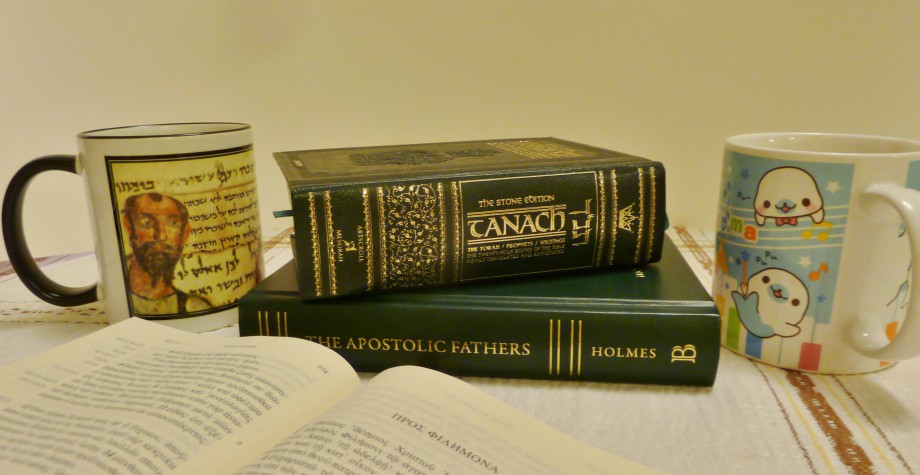Comma Johanneum, a text held dearly by defenders of the Textus Receptus seeing that the text clearly and unambiguously lends support to the classical doctrine of the Trinity, (even though it fits rather nicely with modalism as well). But does the text really say what often is assumed?
οτι τρεις εισιν οι μαρτυρουντες εν τω ουρανω ο πατηρ ο λογος και το αγιον πνευμα και ουτοι οι τρεις εν εισιν. Και τρεις εισιν οι μαρτυρουντες εν τη γη το πνευμα και το υδωρ και το αιμα και οι τρεις εις το εισιν.
For the ones who are witnessing in heaven are three: the Father, the word and the holy spirit, and these three are one. And the ones who are witnessing on the earth are three: the spirit, and the water and the blood, and these three are one in regards to this (1 Joh 5:7, Textus Receptus; my translation)
Judging from its context, the oneness of the Father, word and spirit, appears to be mere oneness in testimony, as is also the case with the blood, water and spirit in verse 8. The passage does not explicitly (nor implicitly) give rise to the notion that the three persons share in one divine nature. Perhaps one could argue that such unity in testimony entails them being one divine being as well. Yet, why is such an ontological claim never made of the spirit, water and blood?
The passage, as well as its sister-text John 10:30, makes use of the neuter gender for the word ‘one’ (εν). Had the texted implied a meaning similar to “these three are one God” or “these three are one in nature” one would expect to find the masculine (εις θεος) or feminine (μια φυσις/ουσια).
So then, even if the Comma Johanneum were a part of the original text (and thus unquestionably a part of Christian Scriptures), its meaning would not cause the scales to tip towards Trinitarianism any day soon.
